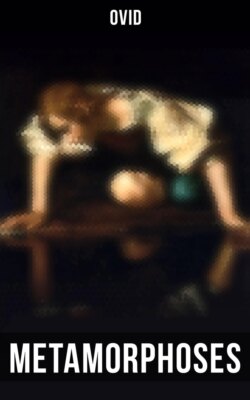Читать книгу Metamorphoses - Ovid - Страница 57
На сайте Литреса книга снята с продажи.
EXPLANATION.
ОглавлениеIf we were to regard this fable solely as an allegory intended to convey a moral, we should at once perceive that the adventure of Phaëton represents the wilful folly of a rash young man, who consults his own inclination, rather than the dictates of wisdom and prudence. Some ancient writers tell us that Phaëton was the son of Phœbus and Clymene, while others make the nymph Rhoda to have been his mother. Apollodorus, following Hesiod, says that Hersa, the daughter of Cecrops, king of Athens, was the mother of Cephalus, who was carried away by Aurora; which probably means that he left Greece for the purpose of settling in the East. Cephalus had a son named Tithonus, the father of Phaëton. Thus Phaëton was the fourth in lineal descent from Cecrops, who reigned at Athens about 1580, B.C. The story is most probably based upon the fact of some excessive heat that happened in his time. Aristotle supposes that at that period flames fell from heaven, which ravaged several countries. Possibly the burning of the cities of the plain, or the stay of the sun in his course at the command of Joshua, may have been the foundation of the story. St. Chrysostom suggests that it is based upon an imperfect version of the ascent of Elijah in a chariot of fire; that name, or rather ‘Elias,’ the Greek form of it, bearing a strong resemblance to Ἥλιος, the Greek name of the sun. Vossius suggests that this is an Egyptian history, and considers the story of the grief of Phœbus for the loss of his son to be another version of the sorrows of the Egyptians for the death of Osiris. The tears of the Heliades, or sisters of Phaëton, he conceives to be identical with the lamentations of the women who wept for the death of Thammuz. The Poet, when he tells us that Phaëton abandoned his chariot on seeing The Scorpion, probably intends to show that the event of which he treats happened in the month in which the sun enters that sign.
Plutarch and Tzetzes tell us that Phaëton was a king of the Molossians, who drowned himself in the Po; that he was a student of astronomy, and foretold an excessive heat which happened in his reign, and laid waste his kingdom. Lucian, also, in his Discourse on Astronomy, gives a similar explanation of the story, and says that this prince dying very young, left his observations imperfect, which gave rise to the fable that he did not know how to drive the chariot of the sun to the end of its course.
